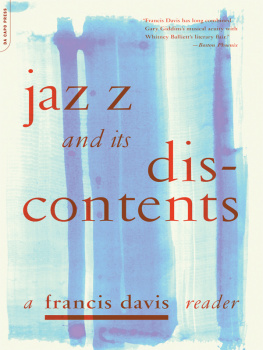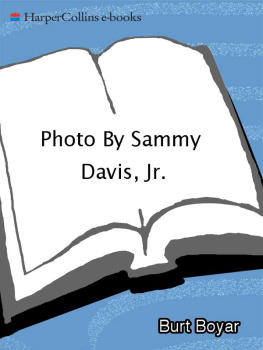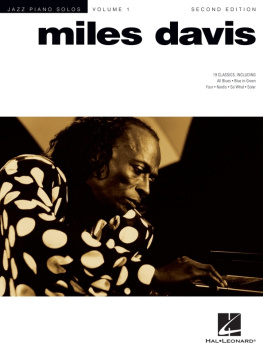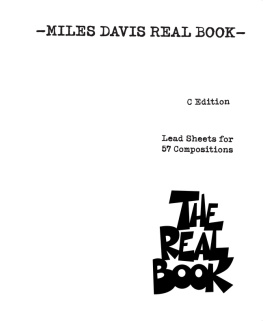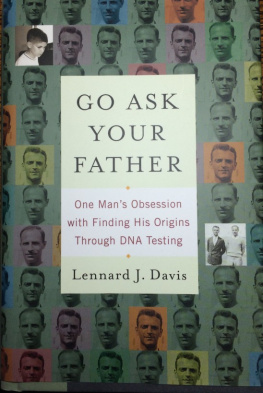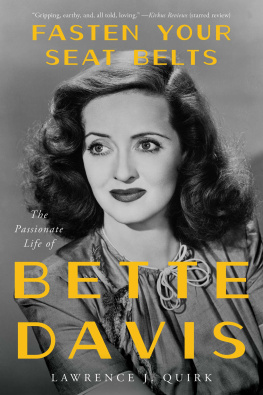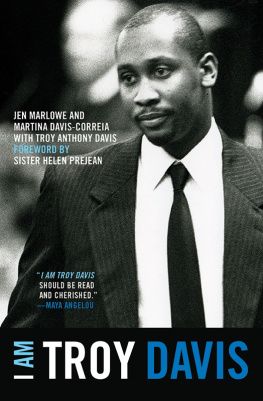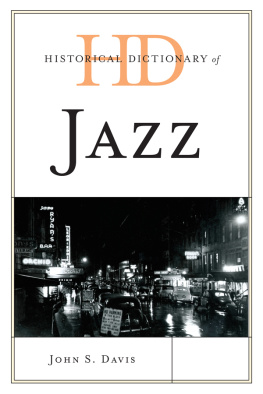ALSO BY FRANCIS DAVIS
Afterglow: A Last Conversation with Pauline Kael
Like Young: Jazz, Pop, Youth, and Middle Age
Bebop and Nothingness: Jazz and Pop at the End of the Century
Outcats: Jazz Composers, Instrumentalists and Singers
In the Moment: Jazz in the 1980s
JAZZ
and Its
DISCONTENTS
A FRANCIS DAVIS READER
FRANCIS DAVIS
Copyright 2004 by Francis Davis
All rights reserved. No part of this publication may be reproduced, stored in a retrieval system, or transmitted, in any form or by any means, electronic, mechanical, photocopying, recording, or otherwise, without the prior written permission of the publisher. Printed in the United States of America.
Set in 11 point Adobe Garamond by the Perseus Books Group
Cataloging-in-Publication data for this book is available from the Library of Congress.
First Da Capo Press edition 2004
ISBN 0-306-81055-7
eBook ISBN: 9780786749812
Published by Da Capo Press
A Member of the Perseus Books Group
http://www.dacapopress.com
Da Capo Press books are available at special discounts for bulk purchases in the U.S. by corporations, institutions, and other organizations. For more information, please contact the Special Markets Department at the Perseus Books Group, 11 Cambridge Center, Cambridge, MA 02142, or call (800) 255-1514 or (617) 252-5298, or e-mail
1 2 3 4 5 6 7 8 908 07 06 05 04
For
DOROTHY DAVIS
AND
TERRY GROSS,
always
Only Myself to Blame
P romise them a concept album and give them your greatest hits. This was my advice to a fellow jazz critic about fifteen years younger than me who said hed like to interest a publisher in bringing out a book by him, preferably without having to write one entirely from scratch. He foolishly assumed that because I had published four collections of my newspaper and magazine articles on jazz I knew the ropes, and I was so flattered I found myself playing along. You need to give them something they think they can use as a sales hook, I said, as if I knew what the hell I was talking about.
Well, it had worked for me. In 1984, I promised the august Sheldon Meyer, of Oxford University Press, a book on musicians born after World War II. I began work on In the Moment intending to give Sheldon the book wed agreed onone with a rather obvious sales hook, given the attention then being lavished on Wynton Marsalis and other players in their twenties or thirties whose emergence supposedly proved that jazz wasnt yet ready for the morgue. (Unlike Marsalis, the younger musicians who most intrigued me were loosely affiliated with the jazz avant-garde.) But the manuscript I delivered a year later was something else altogether. Along with profiles of about a dozen upstarts, it included pieces on Sonny Rollins, Ornette Coleman, Miles Davis, Warne Marsh, Abbey Lincoln, and a host of others born before my arbitrary starting point of 1946. Vanity, disguised as something much nobler, had taken over somewhere along the way. I wanted my book on jazz to include my favorite living musicians regardless of age, and the subtitle Jazz in the 1980s more than justified their inclusion, since all of them were still making vital contributions to jazz. But more than anything else, I wanted In the Moment to be a collection of what I considered to be my best writing on jazz to that point. Sheldon published what I sent him without protest, and I was suddenly not just a writer but an authora bump in status that doesnt necessarily bring a boost in income, I should have remembered to caution my younger colleague.
This current book is my greatest hits. It features my own choice of the best material from my first three collections, and my name is part of the subtitle, which effectively makes me one of the hooks. Yet I find myself wishing I could pull a fast one on John Radziewicz, my current editor, similar to the fast one I pulled on Sheldon nearly twenty years ago. Instead of a greatest hits album, I wish this could be a tombstone-size Mosaic box set of my complete work, including a generous sampling of my uncollected pieces. Or at the very least, an omnibus of In the Moment (1986), Outcats (1990), and Bebop and Nothingness (1996) like those recent editions of Mickey Spillane that each offered three complete vintage Mike Hammer novels. How about all of my pieces on singers in one volume, the giants of swing and bop in another, and so on? Or Francis Davis Remixed, three volumes of raw interview transcripts in place of the chapters that drew selectively from them?
Musicians presuppose that all critics are frustrated musicians, I quipped in my introduction to In the Moment. Thats incorrect: the good ones are frustrated novelists. Over the years, my friend Howard Mandel has quoted this every time weve been on a panel together or shared the stage at an awards ceremonyhell get me into Bartletts yet, Howard will. But what I should have written was that music journalism at its highest level is a valid literary genre, not a vicarious alternative to mastering an instrument. Howard is no frustrated novelisthes writing a mystery I cant wait to readand neither am I. I dropped the false modesty in my introduction to Bebop and Nothingness, pointing out that I tried to crowd even those pieces that begin as record reviews with what Dwight Macdonald, in his essay on Hemingway, described as the subject matter of the novel: character, social setting, politics, money matters, human relations, all the prose of life. I think of the kind of writing I do as fiction by other meansfiction with the added burden of factual accuracy. I favor narrative and mood over thesis, even in my more straightforward critical essays, where narrative takes the form of one thought following another and the only character is myself.
But it isnt pride in my work that makes me wish everything Ive ever published could remain in print and be readily accessible. Quite the opposite: a good deal of what Ive written embarrasses me. Its just that I hate choosing among my pieces. Im too close to them to be sure Im choosing intelligently. Inasmuch as those of us who become critics tend to define ourselves by our taste, criticism is also autobiography by other meansan ongoing account of what recordings and books and movies delighted us or troubled us or pissed us off enough to make us write about them, in an effort to figure out exactly how they fit into our lives. In choosing the best material from my first three collections for this reader, Im probably dooming the rest of it to obscurity more or less ensuring that those three books will remain out of print and disowning many of my earlier passions in the bargain. For the most part, Ive chosen those pieces I feel best represent me as a writer. But Ive also given precedence to those major figures its every critics responsibility to weigh in on, and this has forced me to bypass any number of less celebrated musicians whose work has given me endless pleasure and whom Ive written about at some length. Feeling as though I was turning my back on them, along with part of my life, I turned to Robert Lowell for commisseration. I am not an authoritative critic of my own poems, except in the most pressing and urgent way, Lowell wrote in 1977:

